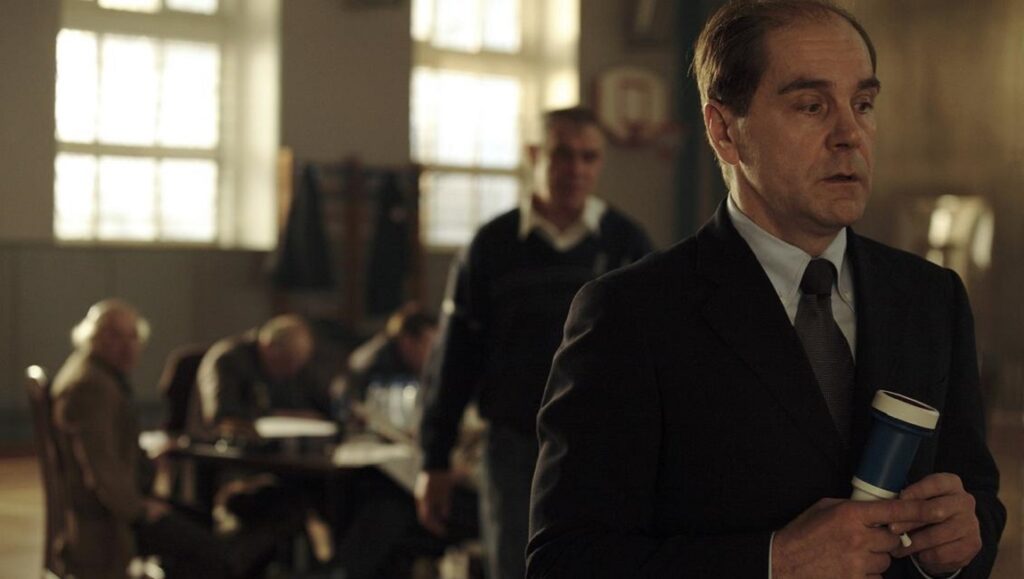In 12, director Nikita Mikhalkov brings to fruition a project ten years in the making. The film is something of a re-imagining of Sidney Lumet’s beloved American classic, 12 Angry Men, that doubles the original’s runtime and applies the thematic concerns of its predecessor to the social and political state of modern-day Russia. The claustrophobia and intense emotion of the original carries over into the frames of Mikhalkov’s adaptation, which was nominated for Best Foreign Language Film at this year’s Oscars. Here, a Chechen teenager is charged with the stabbing of his Russian Army officer stepfather, and twelve jurors are sent to a dilapidated gym, tasked with determining the fate of the accused. Eleven of the jurors, eager to get on with their lives, initially cast ballots proclaiming the youngster’s guilt; however, one of them, an engineer played by Sergey Makovetsky, has his doubts. Feeling sympathy for the defendant, he slowly brings the other jurors over to his side through a combination of logic and demonstration, and by exposing the moral responsibility of the jury.
The picture is inundated with monologues about Russian history and the backgrounds of each character. Unfortunately, Mikhalkov opts to show none of this and instead have his characters tell all, and these long segments often become tedious and, frankly, rather boring. However, the script is able to carry this flaw and, overall, 12 stands as intelligent, engrossing, and moving cinema. As was the case with Lumet’s original, this film is also well acted; Makovetsky, Sergey Gazarov, and Mikhalkov give performances that are a bit theatrical, but constantly riveting. Delivery from these actors turn what could have easily been reduced to droning lectures into rants both entertaining and enthralling: Gazarov is probably the most impressive, creating a captivating character that delivers dexterous comebacks that resonate in the viewer’s mind; Mikhalkov is poised and nuanced in his role as the foreman, bringing a sense of humility to an often explosive ensemble; and Makovetsky possesses a composed gentility that allows him to step into the role perfected by Henry Fonda with ease. Sergey Garmash is also impressive as the racist, heartbroken parent (originally played by Lee J. Cobb). In fact, the entire cast is excellent, save Yuri Stoyanov who portrays an eccentric TV producer. Overall, the strength of these thespians add up to an ensemble that’s perhaps best of the year so far.
Mikhalkov’s direction is likewise fierce and impassioned, laden with meaning and symbolism that communicate his perception of Russia’s infrastructure, and his overarching thematic concern: burdens from the past. Flashbacks depicting the life of the accused, and a country torn apart by war, further this concern, while potent visuals of a piano locked inside what resembles a prison cell and a bird unwilling to fly from the rafters of the asbestos-infested gymnasium add to the film’s metaphoric heft. Ultimately, then, the film serves its purpose, ensuring that the plight of Russia and its people remains at the forefront of our minds long after we’ve left the theater.


Comments are closed.